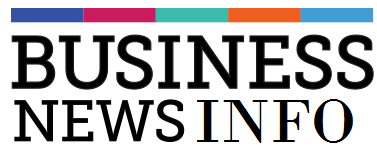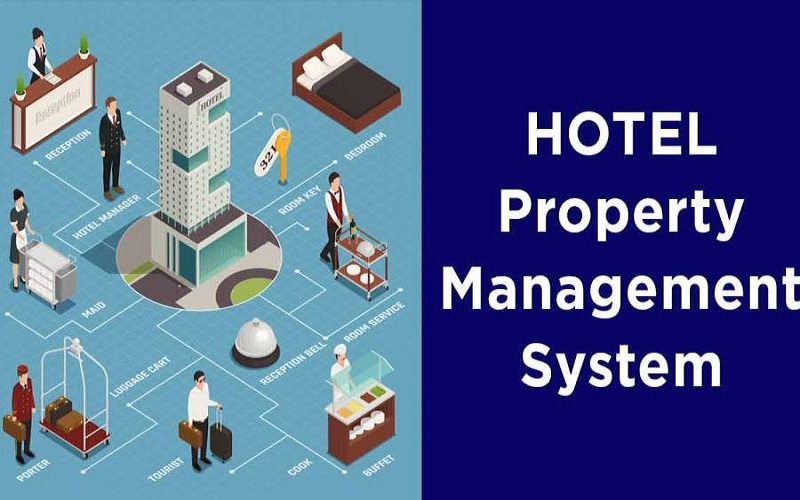The way hotels run their everyday operations has changed as a result of Property Management Systems (PMS). A PMS greatly increases productivity and efficiency in a variety of hotel departments by digitizing and optimizing critical operational procedures. This article examines how a PMS transforms reservations, cleaning, front desk, and other departments to provide better guest service at lower costs.
Operations in the Front Office
In a hotel, the majority of guest encounters take place at the front desk. Many manual front office tasks are now automated and digitalized by a Hotel Management System.Thanks to self-service kiosks and smartphone apps that are integrated with the PMS, check-ins, and check-outs that used to take ten to fifteen minutes may now be finished in a matter of minutes. As a result, there are shorter lines and wait periods for visitors.
Additionally, the PMS guarantees precise and instantaneous room availability. Employees may instantaneously make reservations and check the occupancy status of every accommodation from anywhere in the world. Bookings made at the last minute are easily accommodated, and manual errors are removed. Using the PMS app, guests can make safe financial transactions on their smartphones with contactless payment alternatives.
Efficiency in Housekeeping
One of the most labor-intensive divisions of any hotel is housekeeping. A PMS maximizes efficiency by streamlining cleaning procedures. On their mobile devices, room attendants are provided with computerized schedules that show the location and condition of every reserved room. They immediately label rooms as cleaned by scanning the barcodes on the doors.
This gives managers real-time visibility while removing paperwork and errors. Trash and soiled linen are tracked automatically. To enable speedy check-ins, the system instantaneously updates with rooms that are ready for occupancy. By using such automated procedures, a PMS can, on average, boost housekeeping efficiency by 20–30%.
Bookings & Income Control
The complete reservations process, from inquiry to check-out, is driven by an integrated PMS. Employees can instantly make reservations by viewing room availability across all dates, hotel types, and rates from any system. Sophisticated solutions for revenue management evaluate past performance to maximize price plans.
It is possible to establish bespoke pricing, packages, and promotions in real time to fill empty rooms. To prevent overbooking, channel managers synchronize reservations from external websites. Detailed data on revenue per available room, average daily rates, and occupancy trends can be used to pinpoint areas where profitability can be increased. By managing reservations more intelligently, a PMS raises hotel income annually by 5–10%.
Purchasing and Inventory Control
The PMS keeps an up-to-date inventory of the furniture, consumables, in-room amenities, and other operating supplies. When stock levels drop below predetermined levels, automatic reorder alerts are set off. Digital purchase orders are electronically raised and authorized by pre-established guidelines.
Orders are sent to vendors using mobile apps or emails. Accounting software that is integrated in two ways enables automated invoicing and payment tracking. This simplifies the whole procurement process, from identifying needs to making payments. Follow-ups with suppliers and manual documentation save a great deal of time and effort.
Maintenance in Advance
Comprehensive preventative maintenance programs are implemented for assets, machinery, and facilities via PMS. Digital scheduling is used to plan routine inspections and repairs based on product lifecycles and consumption patterns. On their mobile devices, technicians receive work orders that include the job location and specifics.
Reports on digital work accomplishment guarantee responsibility. Repair histories assist with early maintenance problem detection to prevent expensive breakdowns. Based on depreciation schedules, planned replacement of assets such as fixtures and furniture is carried out. Thepms hotel is in charge of managing proactive maintenance schedules that optimize the overall effectiveness of the equipment.
Business intelligence and reporting
Actionable insights into operations are provided by a PMS’s comprehensive reporting functions. Key performance metrics can be reviewed on-demand or through automated daily/weekly reports. These include income per department, staff productivity, guest satisfaction ratings, and maintenance expenses.
Strong dashboards provide facts in a visually appealing way to speed up decision-making. Cutting-edge analytics technologies find patterns, trends, and anomalies. Comparing results to industry norms identifies areas in need of development. With the use of these data-driven insights, managers can continuously optimize pricing, procedures, and resource allocation to increase profitability.
Better Guest Experience
Enhanced guest service is one of PMS’s main advantages. Guests have the freedom to finish formalities on their schedule by using mobile check-in and check-out. Digital concierge services and self-service kiosks shorten wait times at the front desk.
From the comfort of their beds, guests can manage the TV, curtains, lighting, and other amenities using in-room tablets controlled by the PMS. Digital requests for more supplies can be recorded and promptly filled. Messaging facilitates two-way communication and works in tandem with housekeeping to address problems quickly.
Guests can securely settle debts and make purchases without interacting with the merchant by using the PMS app’s contactless payment options. Without using plastic cards, rooms can be accessed using digital keys on smartphones. Personalized recommendations and offers for restaurants, events, and tourist destinations increase visitor satisfaction.
Employee Self-determination
A PMS provides departments’ employees with the knowledge and resources they need to provide exceptional customer service. Front desk employees are empowered to immediately rebook disgruntled visitors thanks to real-time room availability and pricing. Housekeepers can devote more time to cleaning when they employ digital timetables and work orders.
For prompt problem-solving, maintenance professionals are provided with thorough repair histories and manuals. Managers receive robust reporting to support data-driven decision-making. Routine paperwork is eliminated by automated workflows and alerts, freeing up personnel to engage with guests more. In summary, a PMS uses digital empowerment to turn workers into hospitality experts.
Observance and Safety
A PMS’s built-in compliance capabilities guarantee that rules and guidelines are followed by the industry. Digital recordings of staff activity, inventory movements, and transactions offer audit trails for evaluations. Unauthorized system access is prevented through permissions and authorization measures.
Cybersecurity is improved with two-factor authentication and automatic log-outs following idle time. Private information about important guests and payment information is encrypted. The continuity of operations is protected by real-time backups and disaster recovery solutions. Vulnerabilities are fixed by regular software upgrades. Regulatory compliance, risk management, and governance are all strengthened by a PMS.
Conclusion
In conclusion, a well-executed property management system digitally revolutionizes hotel operations to provide better visitor experiences at less expense. A PMS significantly increases departmental efficiencies by improving front office services, cleaning operations, reservations, inventory, maintenance, and business reporting. Revenue-focused decision-making is also strengthened by advanced analytics. Automation of repetitive processes and real-time visibility increase overall operational effectiveness.





